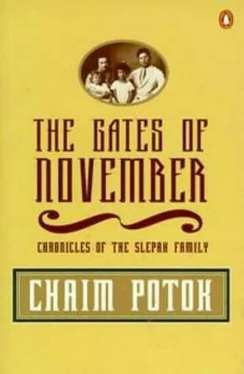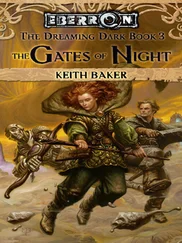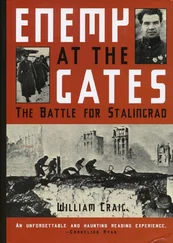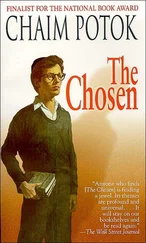But the next day, after being told by Alexander Kerensky, a member of the Socialist Revolutionary Party and the only socialist in the cabinet, that he could not conceal from the new tsar “the dangers that taking power would subject you to personally,” Michael, in tears, abdicated in favor of the Provisional Government.
The regime of the Romanovs was over.
Almost immediately the state bureaucracy disintegrated.
The tsar and his family were arrested.
Workers roamed about Petrograd in a delirium of joy. The centuries under the tsarist yoke had crumbled astonishingly in only a few days. Factory laborers, clerks, drivers, peasants with red armbands walked the streets, assembled to hear speeches, and thought themselves the freest citizens in the world.
The crowd had been victorious; now it wanted to rule.
Moderate socialist members of the parliament found it necessary to negotiate with members of the soviets, councils of workers’ and soldiers’ deputies run by radical socialist intellectuals. It was a shaky arrangement.
The Provisional Government chose to ignore the prevailing pacifist atmosphere and to continue the war against Germany. It made all citizens equal before the law; it granted freedom of religion, speech, press, assembly; it proclaimed strikes to be permissible. It officially abolished the Jewish Pale of Settlement-though in actuality, the Pale had already ceased to exist because hundreds of thousands of Jews had been driven into the heartland of Russia before the advancing German and Austrian armies. But the government was helpless before an upward-spiraling inflation; it could not increase industrial production or halt the disintegration of the economy. Peasants were appropriating land; ethnic minorities began to assert their rights to self-rule; workers’ committees controlled factory management; debating committees ran the army’s chain of command. Incompetent intellectuals stepped into the vacuum left by the vanished bureaucracy. Alexander Kerensky, now the prime minister, proved powerless in his attempts to maneuver between the moderates and the radicals. By the early fall of 1917 Russia was on the brink of anarchy.
In Petrograd and Moscow waited the leaders of the Bolsheviks, once the majority wing of the Russian Social Democratic Workers’ Party-the Mensheviks had constituted the minority wing-for the appropriate moment to overthrow the Provisional Government.
The Bolshevik Party was a unique organization directed from above by an intellectual elite and created for the explicit goals of conspiracy, taking power, and launching a revolution. It is estimated that it had in its ranks about two hundred thousand members, of whom five to ten thousand constituted a highly disciplined core, one-third of them intellectuals. Motivated by ideology and the realization that failure meant, at best, their return to an underground existence and, at worst, their annihilation, they composed a substantial force in a country approaching anarchy.
Vladimir Lenin, leader of the party, intended to seize power in Russia, reconquer the borderlands that had declared their independence, as well as Siberia, and make the party the master not only of Russia but of all the world.

In New York, Solomon Slepak washed skyscraper windows and studied medicine.
It requires little effort of the imagination to conjure the elation, debates, speeches, and general tumult among the New York revolutionaries at their meetings during the period of the Kerensky government. Friction between radicals and liberals; concern over every bit of news from Petrograd and Moscow-and the Russian Army: Would it continue to support Kerensky or stand aside, thereby enabling the Bolsheviks to make their move?
There is no way of knowing if it was Gregory Zarkhin or Solomon Slepak who came up with the idea that they return to Russia and take part in the coming struggle. It was unusual at that time for immigrant Jews to leave America and go back to their country of origin, though many had left earlier. Applying for visas, Solomon and Zarkhin were closely questioned by Russian consular officials in New York: the Provisional Government saw it as not in its best interest to augment the domestic ranks of the Bolsheviks. Because the two men were suspected of revolutionary sympathies, their request for visas was turned down.
It is not at all clear why they did not then attempt to enter Russia illegally. In New York at that time were the Bolshevik Nicholas Bukharin and the soon-to-be Bolsheviks Leon Trotsky and Volodarsky. All quickly returned to Russia via England and the North Atlantic. Then, on November 7 of that year, by the Western world’s Gregorian calendar, which the Bolsheviks adopted in 1918-October 25, according to Russia’s old Julian calendar-the benign revolution of March was taken over by Lenin, and Russia set out upon the path of international revolution. It appeared that a quarrel had erupted between the head of the army and Kerensky, a jockeying for power, and now the army stood aside as the Bolsheviks took control.
It was, at first, the most bloodless of revolutions. Hardly a weapon was fired in the Winter Palace, and Petrograd fell into Bolshevik hands, so inept was the Provisional Government. “We found the power lying in the streets,” Lenin later said, “and we picked it up.”
In New York, Solomon Slepak quit his window-washing job, dropped out of medical school, and began making arrangements to return to Russia by way of the Far East. Gregory Zarkhin had left for Canada shortly after their requests for Russian visas had been refused, and Solomon planned to meet him there. Together they would take a cargo ship to Vladivostok, which was then under anti-Bolshevik control. As soon as they arrived, they would contact the Bolshevik underground.
Solomon rode by train to the American-Canadian border and was stopped by the Canadians because his documents were not in order: He was not an American citizen and had no entry visa for Canada. The Canadians did not especially want to admit anyone who was a recent immigrant to the United States from Russia, which was then in an increasingly violent revolution. They sent Solomon back to New York by train, and to make certain he got there, they transported him in the custody of an immigration officer, who gave him a dollar bill when they arrived and let him go. Solomon promptly took the next train back to Canada, this time disembarking before he reached the border and crossing on foot through fields. In the distance stood a farmhouse. He knocked on the door. French Canadians. He had not forgotten the French he had learned in the technical school in Orsha. He spent some weeks on the farm as a seasonal laborer.
Then he began to travel westward through Canada, working on farms, fixing this, hauling that. His English was good enough to get him by. No one asked for his identity papers. He worked; he was paid; he left. Accumulating travel money.
He met Gregory Zarkhin in Vancouver, which at the time had a fairly sizable Russian immigrant population. And a Russian dockworkers’ trade union of about a thousand men, organized and led by Zarkhin, who was chairman of the union. Solomon Slepak began to work on the docks and was soon the deputy chairman. Awhile later Zarkhin left for Vladivostok alone; they had decided it was unwise to travel and arrive together. With Zarkhin gone, Solomon Slepak assumed leadership of the union.
While the young revolutionary labored on the docks of Vancouver, Lenin set about organizing a Communist state. One of his earliest acts, in December 1917, was the creation of a political secret police force, the Cheka-the Extraordinary Commission for the Struggle against Counterrevolution, Sabotage, and Speculation-under the leadership of a Polish nobleman turned Bolshevik, Felix Dzerzhinsky.
Читать дальше













